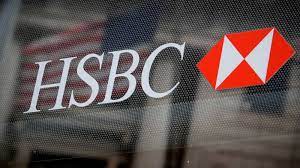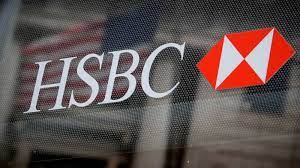
During a sometimes contentious annual general meeting, HSBC resisted an attempt by its largest shareholder to split up the firm.
Ping An, a Chinese insurer, has been attempting to divide the bank for more than a year.
It failed to get the support of any other large shareholder on Friday, as investors voted to reject the idea.
The verdict, according to HSBC chairman Mark Tucker, "draws a line" in a long-running argument regarding the bank's structure.
Despite its London headquarters, HSBC makes the vast majority of its profits in Asia.
Ping An, which owns 8% of HSBC, wants the bank to separate its Asian operations.
It claims that the bank's profitable Asian divisions are subsidising less profitable portions of the business. Splitting HSBC would also liberate it from UK authorities' requirements.
To force the separation, Ping An and Ken Lui, an independent Hong Kong-based shareholder in HSBC, needed to collect 75% of all votes cast at the AGM.
They were unable to obtain those figures since no other significant institutional investor supported the concept.
Tucker warned the AGM that breaking up the bank would jeopardise its worldwide strategy and be hazardous and costly.
"It would not be in shareholders' interests to split the bank," he told the AGM in Birmingham, which was frequently interrupted by climate change activists who claim HSBC is not doing enough to reduce its financing of polluting industries and businesses.
Lui vowed to continue on with the break-up plan at the meeting, saying he would keep pressure on HSBC's management and lobby the bank's many tiny shareholders in Hong Kong.
It's unclear what Ping An's next move will be, but there are broader issues at stake than just generating a profit.
Ping An is partly owned by the Chinese government and, according to some commentators, may represent Beijing's political goals as well as the financial interests of its owners.
Hong Kong is by far China's most important financial centre, and HSBC is its focal point.
Some suggest that just leaving the city's most prized asset in Western hands is a risk that Beijing is unwilling to take.
One example is Russia's economic isolation following its invasion of Ukraine.
If a similar geopolitical crisis involving China arises – which is not impossible given the tensions surrounding Taiwan and the South China Sea – controlling one of Asia's top banks will be critical.
In this sense, HSBC is facing an existential dilemma that extends back to its establishment in Hong Kong under British rule.
The Hong Kong and Shanghai Banking Corporation, as it was originally known, has had a long-distance relationship with the United Kingdom for the majority of its 158-year history.
In truth, HSBC did not become a big UK High Street player until the 1990s, when it purchased Midland Bank and relocated its headquarters to London. Even now, HSBC prints the bank notes in Hong Kong.
"There is a jarring gap between HSBC's centre of gravity in Hong Kong and its subservience to regulators in Britain," says Steve Vickers, a corporate risk consultant based in Hong Kong. "This is an accident of history and a remnant of the colonial era."
Because of the epidemic, the Bank of England advised HSBC and other British institutions to stop paying out dividends to shareholders in 2020.
This infuriated ordinary Hong Kong shareholders, who own around one-third of HSBC's shares and rely on the payments for their retirement savings.
From the perspective of the Chinese mainland, it was a simple but dramatic demonstration of the power of officials on the other side of the world. Asia may generate the funds, but London ultimately makes the decisions.
Neither Ping An nor China wants to be in this predicament. It could explain why Ping An is pressing HSBC so hard and so openly with shareholder activism often associated with Western investors.
"A more assertive China is now unafraid to project itself in the international business arena," says Steve Vickers. "But they have to tread very carefully with HSBC - the stakes are high."
(Source:www.nikkeiasia,com)
Ping An, a Chinese insurer, has been attempting to divide the bank for more than a year.
It failed to get the support of any other large shareholder on Friday, as investors voted to reject the idea.
The verdict, according to HSBC chairman Mark Tucker, "draws a line" in a long-running argument regarding the bank's structure.
Despite its London headquarters, HSBC makes the vast majority of its profits in Asia.
Ping An, which owns 8% of HSBC, wants the bank to separate its Asian operations.
It claims that the bank's profitable Asian divisions are subsidising less profitable portions of the business. Splitting HSBC would also liberate it from UK authorities' requirements.
To force the separation, Ping An and Ken Lui, an independent Hong Kong-based shareholder in HSBC, needed to collect 75% of all votes cast at the AGM.
They were unable to obtain those figures since no other significant institutional investor supported the concept.
Tucker warned the AGM that breaking up the bank would jeopardise its worldwide strategy and be hazardous and costly.
"It would not be in shareholders' interests to split the bank," he told the AGM in Birmingham, which was frequently interrupted by climate change activists who claim HSBC is not doing enough to reduce its financing of polluting industries and businesses.
Lui vowed to continue on with the break-up plan at the meeting, saying he would keep pressure on HSBC's management and lobby the bank's many tiny shareholders in Hong Kong.
It's unclear what Ping An's next move will be, but there are broader issues at stake than just generating a profit.
Ping An is partly owned by the Chinese government and, according to some commentators, may represent Beijing's political goals as well as the financial interests of its owners.
Hong Kong is by far China's most important financial centre, and HSBC is its focal point.
Some suggest that just leaving the city's most prized asset in Western hands is a risk that Beijing is unwilling to take.
One example is Russia's economic isolation following its invasion of Ukraine.
If a similar geopolitical crisis involving China arises – which is not impossible given the tensions surrounding Taiwan and the South China Sea – controlling one of Asia's top banks will be critical.
In this sense, HSBC is facing an existential dilemma that extends back to its establishment in Hong Kong under British rule.
The Hong Kong and Shanghai Banking Corporation, as it was originally known, has had a long-distance relationship with the United Kingdom for the majority of its 158-year history.
In truth, HSBC did not become a big UK High Street player until the 1990s, when it purchased Midland Bank and relocated its headquarters to London. Even now, HSBC prints the bank notes in Hong Kong.
"There is a jarring gap between HSBC's centre of gravity in Hong Kong and its subservience to regulators in Britain," says Steve Vickers, a corporate risk consultant based in Hong Kong. "This is an accident of history and a remnant of the colonial era."
Because of the epidemic, the Bank of England advised HSBC and other British institutions to stop paying out dividends to shareholders in 2020.
This infuriated ordinary Hong Kong shareholders, who own around one-third of HSBC's shares and rely on the payments for their retirement savings.
From the perspective of the Chinese mainland, it was a simple but dramatic demonstration of the power of officials on the other side of the world. Asia may generate the funds, but London ultimately makes the decisions.
Neither Ping An nor China wants to be in this predicament. It could explain why Ping An is pressing HSBC so hard and so openly with shareholder activism often associated with Western investors.
"A more assertive China is now unafraid to project itself in the international business arena," says Steve Vickers. "But they have to tread very carefully with HSBC - the stakes are high."
(Source:www.nikkeiasia,com)














